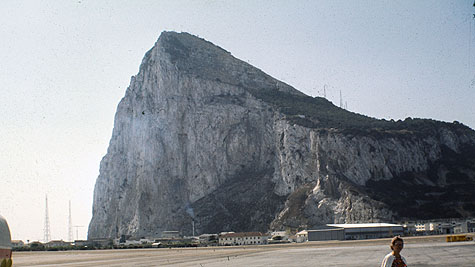![]()
What you must do in this unit
- Read chapter 22 in the textbook.
- Read my notes on Imperialism and watch the short video on the age of imperialism.
- Check out Professor Campbell's video, Was The English East India Company B.S.?
- Study the Questions to Consider and the Key Terms for the unit.
- Submit the Imperialism paper. You will need to read either Chinua Achebe, Things Fall Apart, or Pramoedya Ananta Toer, Child of All Nations, or Amadou Hampaté Bâ, The Fortunes of Wangrin (100 points).
What you can do in this unit
- Listen to some further information about this unit as a mp3 file. You can also read the same information as a txt file.
- I have available the very detailed lecture notes of Professor Thomas Hammond, one of my advisors at the University of Virginia, on imperialism (*.PDF file). These notes will give you not only a summary of the key events of the imperialist era, but also give you an idea of what a professor's lecture notes look like.
- This was also the age of Impressionism. See the trip to the Art Institute of Chicago by two of my former students.
- Grayson Wormser put together a nice Pinterest board on Impressionist and Post Impressionist Art: A Response to Industrialization.
Some videos that you can watch for this unit
- European Imperialism in Africa
- Opium War (Drama 1997) 1/15 English subtitle
- BBC: The Boer War - Part 1
- The Boxer Rebellion
- Introduction to Evolution and Natural Selection
- Manet's Le déjeuner sur l'herbe
- Monet's The Argenteuil Bridge
- Picasso's Les Demoiselles d'Avignon
- For extra credit please suggest to your instructor a relevant video for this unit of the course. Send the title of the video, the URL and a brief explanation of why you find the video interesting and applicable to the material that is being studied in this unit.
Extra Credit Options
- For up to 25 points of extra credit, review these sources (The Earl of Cromer, Why Britain Acquired Egypt in 1882 (1908); Wilfred Scawen Blunt: Britain's Imperial Destiny (1896-1899); Anthony Trollope: The Diamond Fields of South Africa (1870)) and write a short paper examining the colonial experience. Please be sure to include quoted material.
- For up to 25 points of extra credit, explore life in the United States at the turn of the century. Check out the Slatington News Project and write the paper. (Maybe more points if the paper is great!)
- For up to 25 points of extra credit, explain the outcomes of the Berlin Conference of 1884-85 in a one-page paper. Please be sure to cite your sources.
- For up to 25 points of extra credit, was there an "Impressionism" movement in music and literature? Write a one-page paper addressing this issue.
- For up to 25 points of extra credit, watch Breaker Morant and write a one-page paper assessing the historical accuracy of the movie.
- For up to 25 points of extra credit, read Lenin's Imperialism and explain his main revisions to Marx's theory of socialism in a short paper (1-2 pages).
- For up to 10 points of extra credit, what was the extent of and justification for American imperialism at the turn of the twentieth century? Answer that question in a long paragraph. Use some of the resources available at sourcebooks.fordham.edu/mod/modsbook34.asp.
- For up to 10 points of extra credit, read Captain F. D. Lugard, The Rise of Our East African Empire (1893) and write a long paragraph explaining the rationale for the British empire in Africa.
- For up to 10 points of extra credit, read Simón de Bolívar (1783-1830): Message to the Congress of Angostura (1819) and write a paragraph in which you examine Bolivar's rationale for his resistance and his political ideas.
- For up to 10 points of extra credit, read the Monroe Doctrine (1823) and write a paragraph in which you explain the justification for American imperialism.
- For up to 5 points of extra credit, you can submit the answers to the Achebe study questions. Please write in formal, complete sentences.
- For extra credit, please suggest a relevant website for this unit of the course. Send your instructor the title of the site, the URL and a brief explanation why you find the information interesting and applicable to the material being studied this unit.
Unit Learning Objectives
- Upon successful completion of this unit, you will be able to (1) explain the motives for imperialist adventures by different European countries, (2) assess the impact of imperialism on non-Western societies and (3) analyze a historical primary source.
